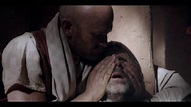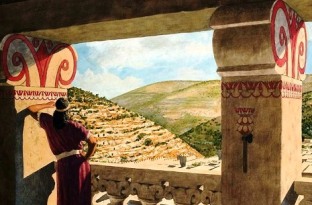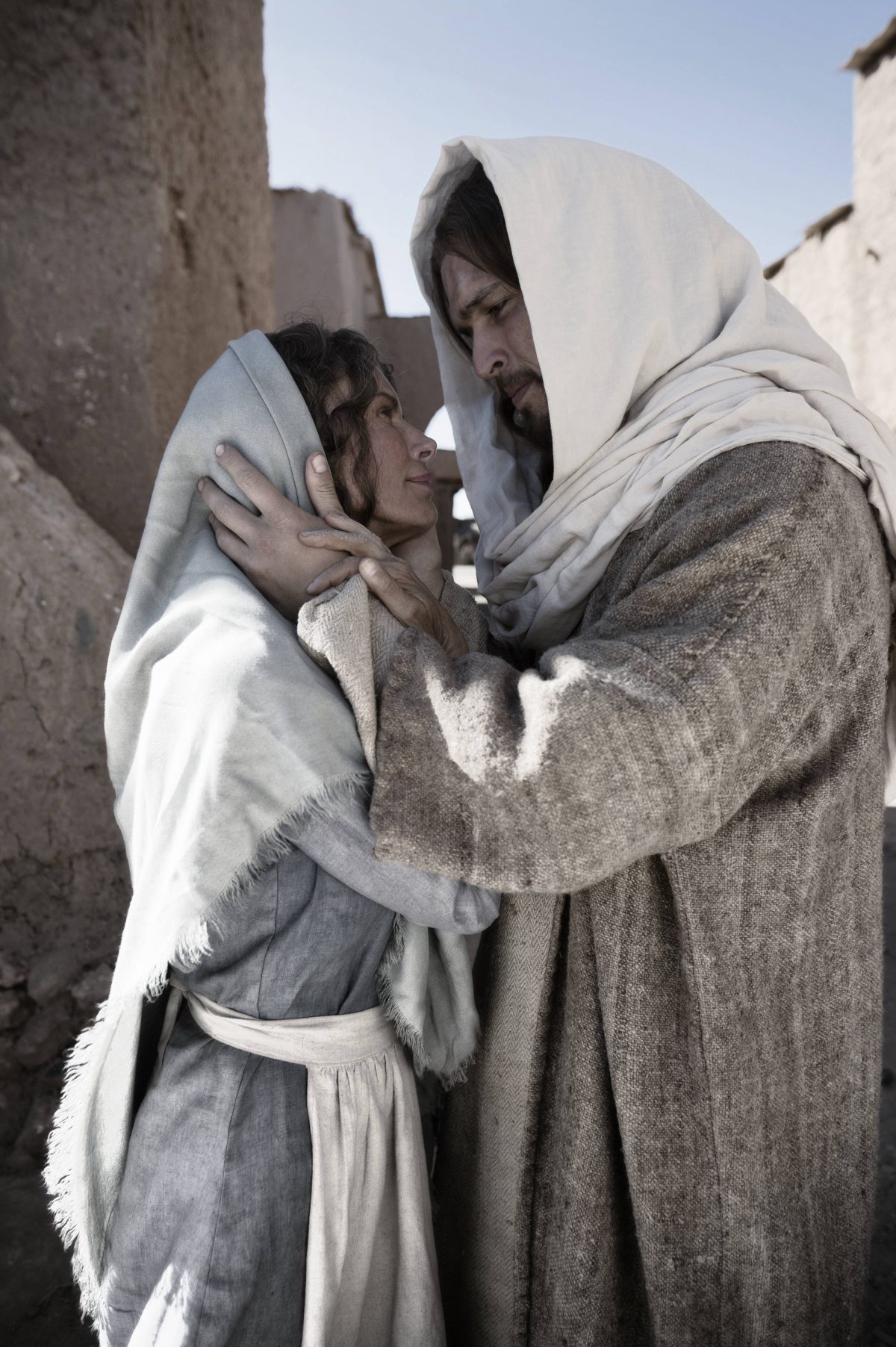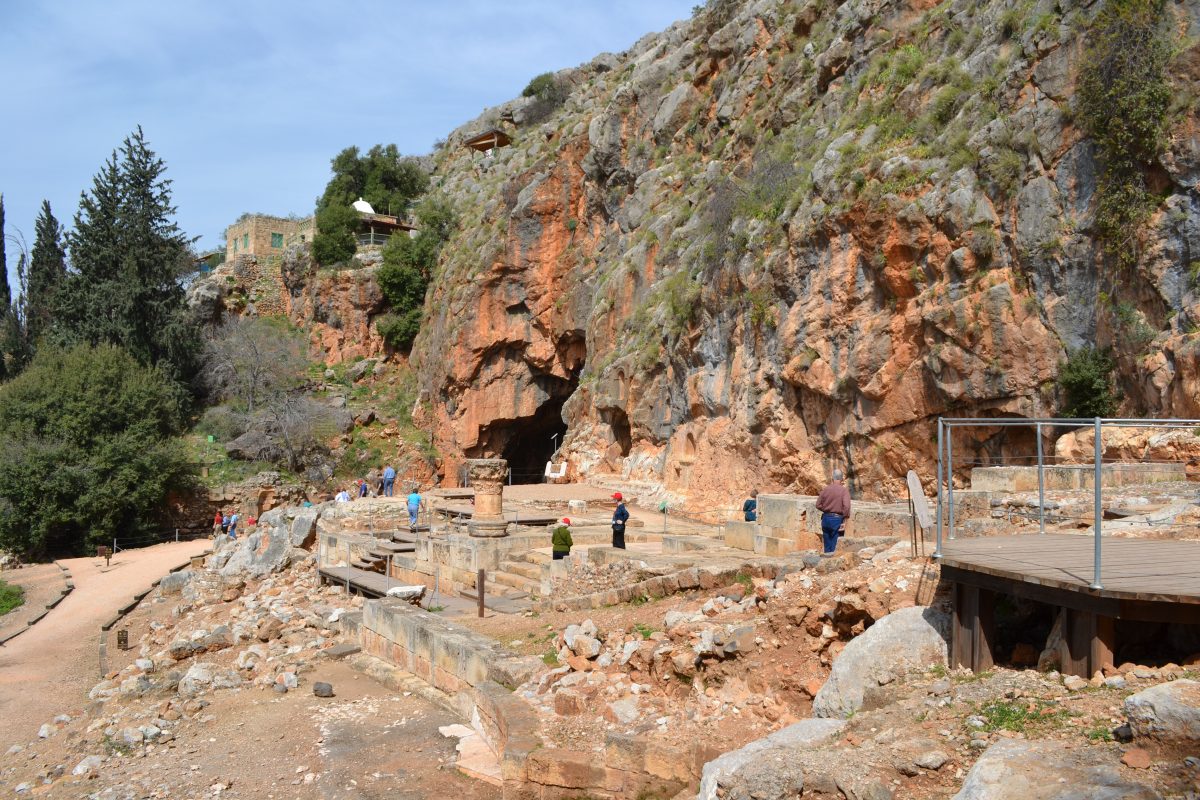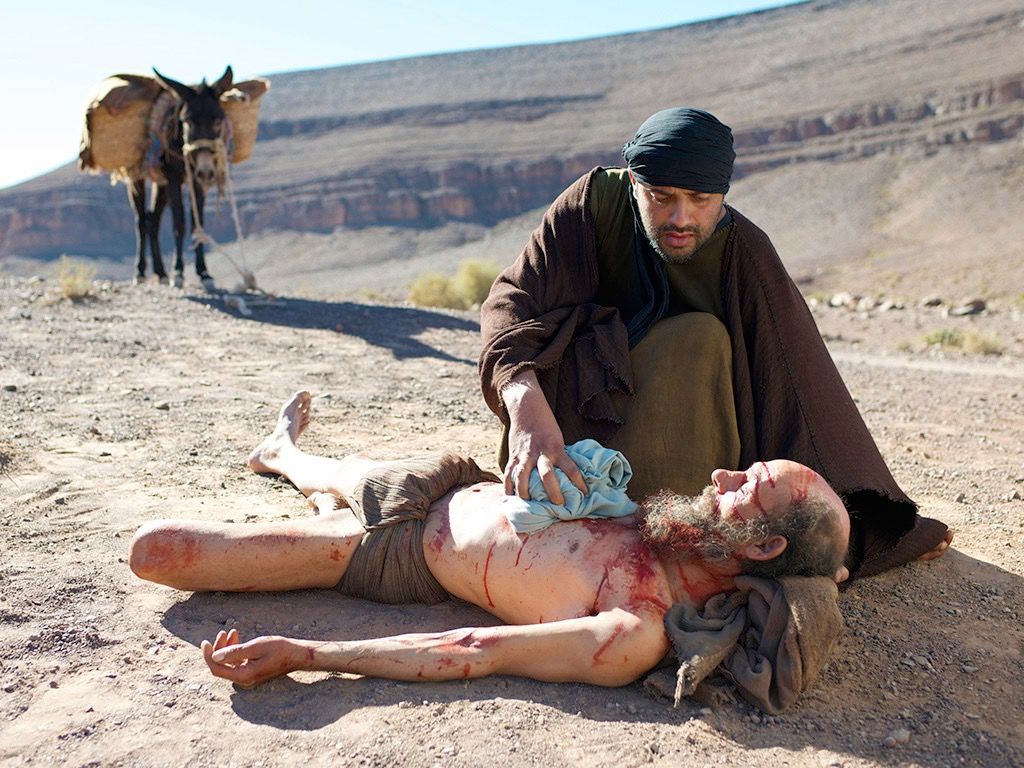Background Passage: Acts 9:1-25; Acts 22:13-16
The light flashed and the world would never be the same.
In one of the most familiar passages in the New Testament, an ambitious and zealous young Pharisee, emboldened by the stoning of Stephen, begged for a chance to carry the persecution of Christians beyond the walls of Jerusalem. With letters of authorization in his pocket, Saul set out for Damascus breathing the fire of fanaticism, intent upon finding the followers of the crucified Christ and dragging them back to Jerusalem for punishment. A man on a malicious mission.
With the walled city of Damascus on the horizon, a blinding light seared his retinas and knocked him to his knees. He cried out in shock and pain only to be silenced by a voice calling his name.
“Saul, Oh, Saul. Why do you persecute me?”
In the course of a powerful conversation on a dusty road, Saul came face to face with the brutality of his deeds and the reality of the living Lord.
“I am Jesus, whom you are persecuting. Go into the city. You will be told what you must do.”
We know this story as the conversion of Saul. The redeemed missionary of God told of his encounter with Christ over and over again. A testimony and tribute to the unmerited grace of God.
The light on the road to Damascus changed the heart of a man who would become the world’s greatest missionary and the agent of redemption to the Gentile world. Saul’s was a life so transformed that he needed a different name. We now know him as Paul. It’s a wonderful story of God’s transforming work in his world.
From that moment on, Paul played a starring role in the spread of the gospel, but his supporting cast contributed to his success. Barnabas. Silas. Timothy. John Mark. We can list name after name of those who traveled with Paul. Assisting in his work. Staying behind in isolated locations to grow the seeds of faith he planted.
One name we tend to overlook took Saul’s hand in his blindness and called him “Brother.” Let me introduce you again to Ananias.
He climbed the narrow stairs
to the roof of his home.
A cool breeze blew in from the sea,
refreshing his body and soul.
From this vantage point,
Ananias could watch the sunrise
cast its reddish glow over the eastern hills,
reflecting onto the wispy clouds streaked across the sky.
On the rooftop.
The perfect way to start each day.
Ananias stretched his arms over his head.
Stood on his tiptoes
to loosen aching muscles,
stiff and sore after a fitful night’s sleep.
Sitting on the parapet of his home,
legs dangling over the side,
Ananias sipped a cup of goat’s milk.
Listened to the familiar sound of his wife
preparing breakfast for the family in the room below.
Despite the peaceful surrounding,
he could not shake the sense of unease
as he thought about last night’s dream.
He could picture it as clearly as if
it actually happened.
Hear the conversation as surely as if
God sat beside him on the wall.
He walked it through again in his mind.
A voice called…
“Ananias.”
“Yes, Lord.”
“Go to the home of Judas on Straight Street.
Ask for the man from Tarsus named Saul,
for he is praying.
In a vision he has seen a man named Ananias come
and place his hands on him to
restore his sight.”
Over and over in his mind, he heard,
“…a man from Tarsus named Saul…”
“…a man from Tarsus named Saul…”
…”Go…”
“Go…to Saul…”
Ananias felt his stomach roll again.
“This makes no sense…”
Saul’s reputation preceded him.
So much anger in this Pharisee.
So much harm to the saints in Jerusalem.
Ananias knew the rumors.
Saul was coming to Damascus to spread his terror.
To arrest every follower of Jesus that he could find.
The voice in his dream
urged Ananias to go as instructed.
“He is my chosen instrument…”
God had a plan.
Ananias had a part to play
in that plan.
Shaking himself from his reflection,
Ananias took a deep breath.
Climbed down from the roof.
With a faith deeper than his fear,
he walked through town to Judas’ home.
Ananias stopped short at the sight of the temple guards
gathered around the campfire.
Their presence
triggered his desire to run.
He steeled his resolve.
Stepped forward.
Stared straight ahead.
Walked slowly through the soldiers
as they began to rise.
Hands on the hilt of their swords.
The door to the home opened before he knocked.
They had expected him.
Ananias stepped over the threshold.
Closed the door.
Let his eyes adjust to the dim light.
Saul sat facing the fire.
Blind eyes stared vacantly into the flame.
Lost in private pain.
A face etched with guilt.
The once proud Pharisee rocked
absent-mindedly on the small stool.
Lips moved in silent prayer of
remorse and repentance.
Ananias stood without moving.
Fought the desire to turn and go.
But, when he saw the tears well in Saul’s eyes,
the disciple’s heart broke.
For the first time he saw Saul.
Not his fine robes.
Not his rage.
Not his reputation.
He saw Saul.
He saw the broken heart of a
despondent and despairing soul.
Ananias found himself standing beside Saul
without remembering the steps it took to get there.
He followed Saul’s gaze into the fire,
With tears in his own eyes,
he laid his hand gently on Saul’s shoulder.
After a moment of shared silence,
Ananias spoke in a voice soft and sincere,
“Brother Saul…”
With those words
the scales of physical and spiritual blindness
fell from Saul’s eyes.
New sight.
New insight
Into his purpose in life.
Scripture reveals so much about how God used Saul, or Paul, as he was later known, to take his good news to the Gentile world. This former zealous Pharisee became the world’s most ardent servant of Christ and arguably, next to Jesus, the most important man in the Christian faith.
By contrast, we capture what we know of Ananias only in this story and in one small reference in Acts 22. Here he is called simply “a disciple.” In Chapter 22, a “devout observer of the law” and a “man highly respected by the Jews” in Damascus.
We don’t know when Ananias became a follower of Christ. Maybe he heard Jesus preach and put his trust in him on a Galilean mountainside. Perhaps, he was a Jew who had traveled from his home in Damascus to Jerusalem for Pentecost and heard Peter proclaim the gospel. Maybe, a friend told him about the resurrected Christ he saw in the upper room. Regardless of how it happened, Ananias was a disciple.
Yet, his actions tell us so much more about this follower of Christ. It’s notable to me that he is called a disciple and not a pastor or evangelist. Not a deacon or an elder. A disciple. A follower. A learner. As a man who professed his faith in Jesus Christ, Ananias spent his time trying to figure out what that meant and how he should live as a result. He was a man much like you or me.
Ananias enjoyed a wonderful reputation as a student of Old Testament scripture and one who lived obediently to its teachings, a likely hold over to his Jewish upbringing. When introduced to Jesus either in person or through the witness of others, the encounter changed his life. He accepted Jesus as the Messiah promised in scripture. The passion he held for his faith as a Jewish man found its fulfillment in Jesus.
Despite his break from the prevailing Jewish doctrine, Luke tells us in his account that his reputation among the Jews in Damascus remained unsullied. They could find no fault in him. As followers of Christ we ought to have that glowing reputation in our own communities. The world should know us as a Christ followers. As learners. As people who take the principles of Christian living so seriously that it directs the way we live. We see in this passage, Ananias’ commitment to Christ.
We also see in the lines of this story, the courage of his conviction. The religious leaders in Jerusalem sent Saul to Damascus to rain down havoc. He had papers to prove it. In all likelihood, Ananias was on Saul’s hit list. Christians in Damascus knew Saul was coming. His reputation for ruthlessness frightened them. He brought with him a promise of prison, punishment and death.
I suspect many of the Christians fled the city in advance of Saul’s arrival…but Ananias stayed. We don’t know why. Maybe he thought, “What good is my conviction if I choose to disown it at a difficult time or run from it in the face of adversity?” When others ran, Ananias stayed.
With the call of the Holy Spirit, Ananias not only stayed, but he made himself available to do the brave and the unthinkable. The Lord called and Ananias answered as Samuel did. “Yes, Lord. I’m here.” He did not know the mission…not yet…but he opened himself to the possibility of being used by God.
Ananias may have shown his inner Samuel, but he also channeled his inner Gideon when God told him what he needed him to do. Jesus planted the seed of salvation in Saul’s heart. The Holy Spirit needed Ananias to close the deal. To lay hands upon this broken man and welcome Saul into the fellowship of believers.
“I’m here, Lord, but did I hear you right?” When presented with God’s plan, Ananias sought clarity and understanding. The whole idea of going to Saul was counter intuitive.
“I have heard many reports about this man and all the harm he has done to YOUR saints in Jerusalem. And he has come here with authority from the chief priests to arrest all who call on your name.”
Ananias and I share a common trait with Gideon. Our short-sightedness gets in our way. You see, most of the time our vision is unable to see beyond our fear. God’s perspective…his vision…takes in history and future in a moment’s glance. Our failure to act upon his direction cancels the blessings that come from playing the role God needs us to play.
Sometimes our myopic sight needs clarity that only God can give. I think God delights in our desire for understanding if it comes from the heart. When Ananias questioned the sanity of confronting Saul, God answered, not with recrimination, but with a promise. “Go! This man is my chosen instrument to carry my name before the Gentiles and their kings and before the people of Israel.”
Sprinkling the fleece with dew, God told Ananias, “I need you today. I’m counting on you because this man is a game changer, but he needs to see that my people are willing to embrace the change in his heart. You’re step one in this process, Ananias. I need you to do this for me.” With the fleece sufficiently damp, Ananias went where he was told. We must be ready to do the same.
I’m not sure when Ananias’ heart truly turned. I suspect he was talking himself into doing what the Holy Spirit led him to do before he made the turn down Straight Street. I suspect he didn’t know for sure how he would react when he came face to face with Saul. His heart changed, however, when he saw the man, humbled, hurting and blind, sitting before the fire.
Can’t you hear it in his voice, choking back the emotion of the moment as he placed his hand upon his shoulder, “Brother Saul…” In this moment, in those two words, we underscore the compassion of Ananias. His words, his touch, stitched the open wound of Saul’s remorse that had to be closed and healed before he could be used by God for great and mighty things.
“Brother Saul.” The whole gospel story hinged on those two words and the world would never be the same.
I don’t know about you, but I find it pretty easy to be a disciple of Christ in the broad sense of the word. I enjoy learning about Jesus and how my relationship with him needs to be evidenced in my life. It’s much harder to move beyond the learning and into the listening. To the obeying. To playing the role I hear God calling me to play. Drawing upon the courage of my conviction to risk even as much as a mere insult…I find that much harder to do.
Ananias reminds me that God asks me to be available. To set aside fear and uncertainty to follow where he leads, even if that means walking through a platoon of temple guards to stand face to face before my persecutor. He reminds me to see clarity of God’s intentions and to accept that the view from heaven is infinitely broader and wiser than mine.
I learn from Ananias that the smallest act of obedience can have great significance. The simplest act…calling a troubled soul “my brother…” may be all it takes to change the world.
